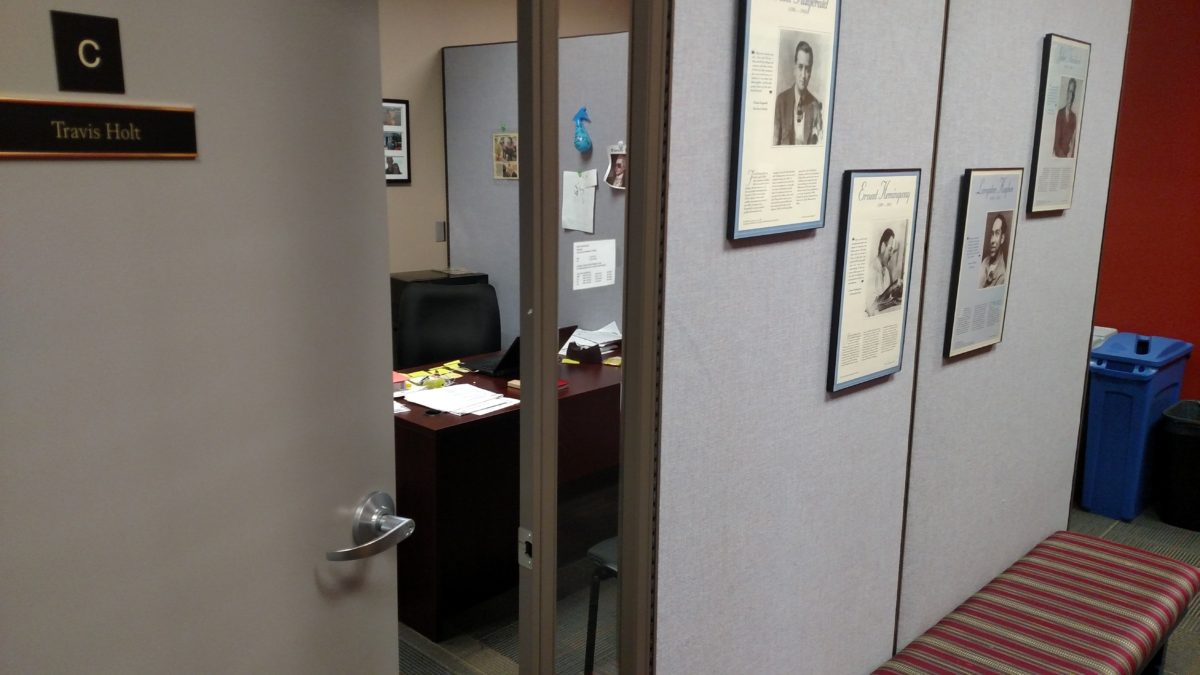Many of the histories of Composition studies in America focused on the Hill and the First Year Composition course at Harvard University; however, Mendenhall (2011) provided a somewhat contrasting view of the composition’s history as seen in a localized context of The Ohio State University, particularly the impact of Joseph V. Denney. Mendenhall (2011) documented how OSU does not share the common decline of compositional studies at other universities around the turn of the century because of Denney’s recognition of the flexible definitions of “science” in connection to research and how this allowed for the department to evolve and thrive instead of struggling to fit a rigid educational structure. As many other universities followed the German model of a research university, OSU followed suit, but with the focus on meeting the needs of the local student community, which meant providing both liberal and technical education to generate educated civilians (largely because it was also a Land-grant institution). As other universities struggled to bridge the gap between traditional literary studies and the new FYC, Denney did so successfully as he “subordinated taste in composition” to develop a stronger sense of a “rhetorical situation” the writer might have encountered (Mendenhall, 2011, p. 139). This article provides a different perspective of Composition and Rhetoric at the turn of the century compared to the common narrative of its history, which is Composition and Rhetoric faded until a resurgence towards the second half of the 20th century.
Mendenhall’s (2011) work is noteworthy for a history of Composition and Rhetoric because it documented that the supposed decline of the field was not all encompassing and most likely misinterpreted as such. Because of how universities defined certain research terminology such as “real, practical, and scientific” (Mendenhall, 2011, p. 137) with specific and rigid definitions, they relegated Rhetoric and Composition to obscurity, forcing it to change some of its terms and combine with other areas such as literary theory or criticism; thus, it “disappeared.” Denney’s adaptive approach to how he defined some of these research terms connects to our ENGL 810 class discussions regarding how solidified views of the field actually limits what it should probably include. The question of “What is English Studies?” is still current just as it appeared to be a century ago; the more scholars try to solidify a definition, the more likely they are to eliminate part of the field. The field is flexible, especially as new technologies change how composition happens. Essentially, Composition and Rhetoric’s history lies in the definitions we have created for it, which is true for much of what has happened in the past century. My question now is what other universities follow more of the OSU example during the early twentieth century and if they are Land-grant universities as well. Additionally, how might our current definitions shift as a result of changing university models now? After reading Mendenhall’s (2011) article, my initial response to this might be that the situation is similar to what English departments faced before: with concerns for the university as a whole coming first, altering definitions of what English studies includes might be a form of self-preservation, but the “disappearing act” mentioned with Harvard at the turn of the century is much less likely due to the recognition of diversity within the field. While this article was not the Harvard-focused history that many other sources provided, I felt I had more breadth of knowledge regarding this pivotal point in Composition’s history and understanding what exactly happened at many of the Ivy League institutions.
Reference List
Mendenhall, A. S. (2011). Joseph V. Denney, the Land-Grant Mission, and Rhetorical Education at Ohio State: An Institutional History. College English, 74(2), 131-156. Retrieved from http://www.jstor.org/stable/23052356
